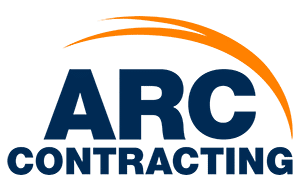5 Things to Consider when Replacing a Commercial Roof
Roofing is an essential part of a commercial building. A commercial roof, is literally, on top of a business, protecting a business’s investments that it houses. A commercial building might be protecting expensive equipment from theft or the elements or keeping hard-working employees safe while effectively implementing production or distribution processes. It is important to view the building as more than just four walls and a roof, a commercial building is an investment, and it needs to be maintained properly to ensure it continues to be a productive part of a business.
Tips to consider when replacing a commercial roof:
- First, you need to consider if it is time for your commercial roof to be replaced or if your commercial roof can be repaired. Some contractors provide free inspections to assess if the roof needs repairing
 or replacing. Find a contractor that has accreditations, look for past customer referrals from Angie’s list or the Better Business Bureau.
or replacing. Find a contractor that has accreditations, look for past customer referrals from Angie’s list or the Better Business Bureau. - Check your commercial roof for “ponding”. If you are holding off on consulting a roofing contractor, you can regularly check your building’s roof for water buildup or “ponding”. Ponding is a sign that a building’s roof might not be effectively draining excess water, pools of excess water can weaken a roof’s membrane, cause algae buildup, and potential deformation of the roof’s structure.
- If your commercial roof is damaged by recent weather, check with the insurance provider. Some commercial roof contractors will work with you to assist with the claims process. Remember that roofing contractors might be more familiar working with insurance companies making them a great resource when going through the claim steps.
- Educate yourself on commercial roofing materials. Find a contractor that is knowledgeable about all the listed commercial roofing materials.
- Thermoplastic Polyolefin (TPO) is a durable and weatherproof material that is a common choice for roofing contractors. Thermoplastic roofs provide protection from UV light, chemical exposure, and the ozone. TPO roofs also resist damage from punctures, strong winds, chemicals, and fire.
- Ethylene Propylene Diene Monomer (EPDM) is widely used for buildings with low-slope roofs. EPDM is both durable and versatile making it an extremely long lasting material to choose for commercial roofing. It is easy to install, maintain, and repair. EPDM is also, only a single layer, which makes it more affordable than some thicker options.
- Polyvinyl Chloride (PVC) is a reinforced roofing system that is both long lasting, and high quality. It is good commercial roofing option for tough climates and is quick to install.
- If you decide to hold off on contacting a contractor for an inspection, continue to be proactive about caring and maintaining your commercial building’s roof. Falling behind in roof maintenance can weaken a roof’s structure which can lead to more serious damage to the building or to the building’s occupants.

Commercial buildings
Whether you choose roof replacement, repair, or just continual maintenance, continue to view your building’s commercial roof as an essential part of a business. Work with reputable roofing contractors and regularly inspect your commercial roof for pooling or other damage that can cause structural damage to the whole building. A commercial building is one of the most expensive investments a company might make, like any investment, it needs continued attention to continue to be a productive part of an organization.
ARC Contracting provides commercial roof replacement and commercial roof repair in Appleton and Neenah areas.



